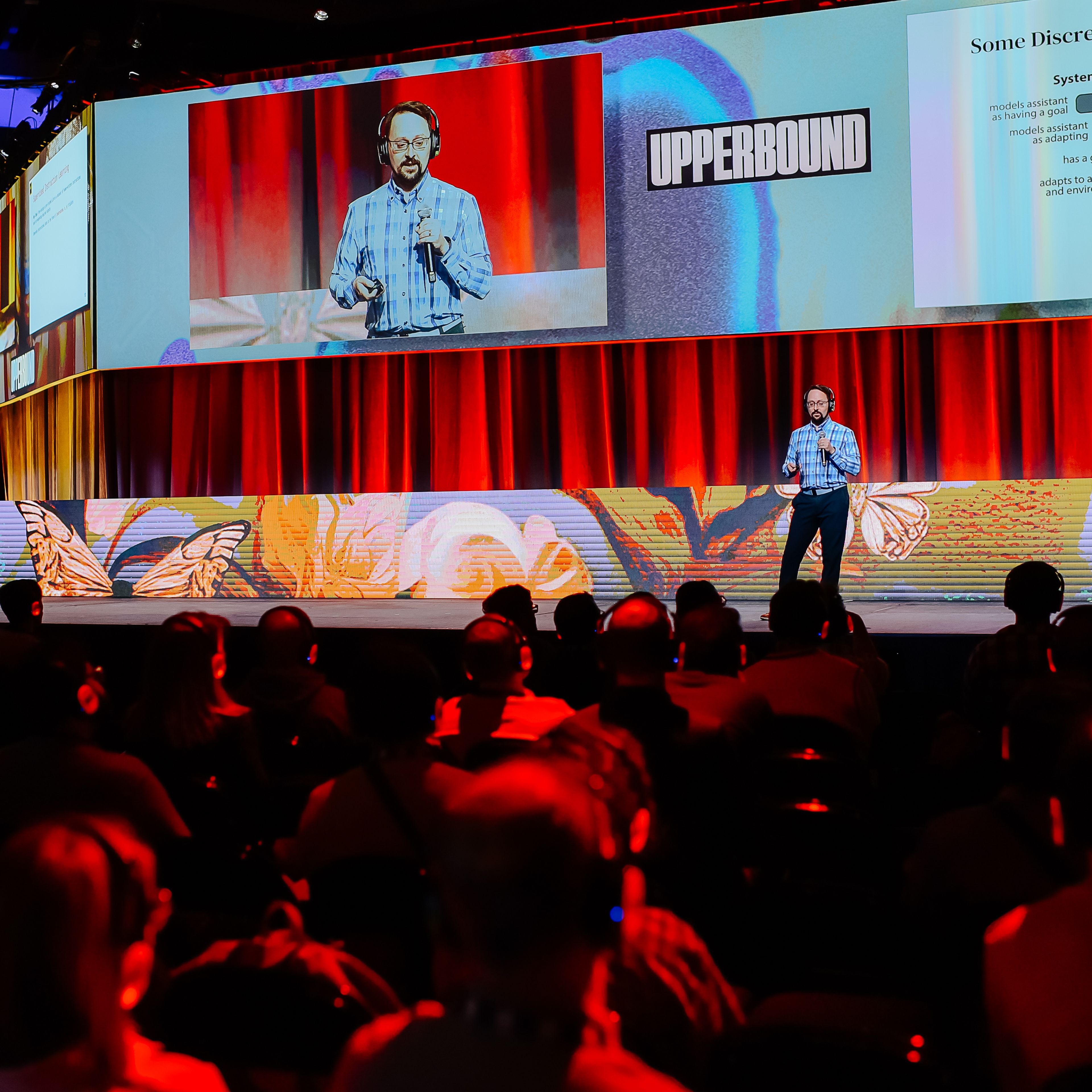After 40 years of advancing the field of artificial intelligence, Jonathan Schaeffer is ready for something different.
“Don’t call it a retirement,” Schaeffer jokes. “I call it a reinvention.”

For the past four decades, Schaeffer has been a leading innovator in the field of game theory, a mathematical discipline concerned with strategic decision-making. He is a Distinguished Professor of the Department of Computing Science at the University of Alberta, the university’s former Dean of Science, and one of the founding members of Amii.
Over that time, he has made significant contributions to the field of game theory and has achieved numerous milestones in advancing artificial intelligence. This fall, Schaeffer is retiring from his position at the university. But he does plan to continue work on his new area of interest: online education.
A love for games
One of Schaeffer’s most well-known achievements was his work programs that could play the game of checkers. However, it was chess that first got him interested in artificial intelligence as an undergrad at the University of Toronto.
Schaeffer was a chess player and became fascinated by the current attempts to build machines that could play the game. He soon began building his own chess-playing program, and his desire to improve it led him to artificial intelligence at the University of Waterloo, where he would pursue both his Master’s and later a PhD.
During that time, he felt some pressure to focus on other aspects of artificial intelligence, like medical diagnosis. But Schaeffer remained fascinated with games.
“To me, research has to be fun. I wanted to work on an application, which motivated me,” he says.
Of course, it wasn’t just playing around. While games like chess and poker were tools that he used to advance his research, Schaeffer’s work has led to significant impacts in artificial intelligence and real-world impact. His research has contributed to advancements in GPS navigation and helped create new tools in bioinformatics.
Making history
In 1984, Schaeffer joined the University of Alberta, first as a lecturer and later an assistant professor in computing science. As he tells it, it was the “ultimate job”. Not only was he able to work on his chess program full-time, but he was getting paid to do it. The next year, his program — Phoenix — tied for first place at the world computer chess championship.
However, Schaeffer’s greatest scientific achievement would come from another game. In the late 80’s, he turned his attention to designing computer systems that couple play checkers; the game was less complex but offered many of the same types of challenges that drew him to chess.
Schaeffer became the lead programmer on a checker-playing program named Chinook. In 1994, that program became world-renowned for achieving a major milestone in the history of artificial intelligence. Chinook was declared the winner of the Man-Machine World Champion, making it the first time in history a computer program won a championship against humans in any game.
The team’s work continued for the next decade. In 2007, they announced that their research had solved the game of checkers. Chinook was now capable of playing the game perfectly and was undefeatable — another major achievement in game theory.
A new challenge
Schaeffer’s work expanded to other games as well. In 1995, he started the poker research group at the University of Alberta. During his time there, he helped develop Polaris, a groundbreaking AI program that produced impressive results in playing heads-up Limit Texas hold'em poker.
Throughout his career, Schaeffer has garnered over 12,000 citations and he has supervised more than 75 graduate students.
While Schaeffer’s games research has made major advances in AI, his contribution to the field expands much further. In 2002, he was one of the founding members of the Alberta Ingenuity Centre For Machine Learning, a hub for visionary AI researchers driving innovation, which would later become Amii. In addition to his work with Amii, Schaeffer worked in administration with U of A, first as Vice Provost and Associate Vice President (Information Technology), and later as the Dean of Science until 2018.
Schaeffer has been recognized as a Fellow of the Association for the Advancement of Artificial Intelligence and a Fellow of the Royal Society of Canada. In 2020, he received the Award for Lifetime Achievement in Computer Science from CS-Can | Info-Can.
Looking to the future
As someone who has spent many hours in front of a lecture hall, Schaeffer admits that he was initially skeptical of the idea of online education courses. But during his time as a university admin, he was instrumental in launching the U of A’s first MOOC (Massive Online Open Course) in 2013. The experience convinced him that online learning could be done in an effective, engaging way.
In 2014, Schaeffer co-founded Onlea, a company focused on creating engaging online learning experiences. The endeavour began as a part of the university before being spun off as an independent, for-profit company. Now that he is retiring from the university, Schaeffer plans to focus his time on the company. Although he isn’t planning to leave artificial intelligence behind entirely — Schaeffer says he is currently looking into how machine learning can be used to improve the online education experience. He is also passionate about increasing the public’s understanding of AI science and is currently writing a book on that topic.
“Our understanding of AI has changed dramatically, I sort of feel like I'm a surfer. I've been at, or near the top of the wave in this particular field, and now it’s sort of nearing the shore,” he says.
“But of course, AI is a wave that is getting bigger and bigger and it's going to change the world.”

Not Your Average AI Conference
Learn from Leading Minds in AI at Upper Bound
Be one of the thousands of AI professionals, researchers, business leaders, entrepreneurs, investors, and students in Edmonton this spring. Explore new ideas, challenge the status quo, and help shape a positive AI future.